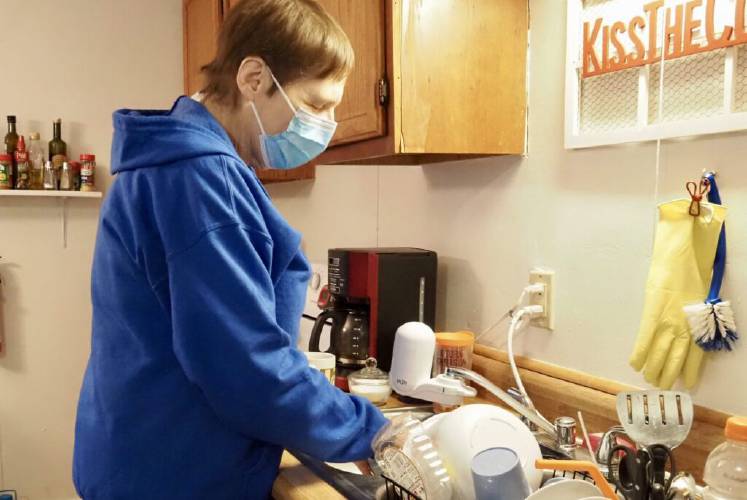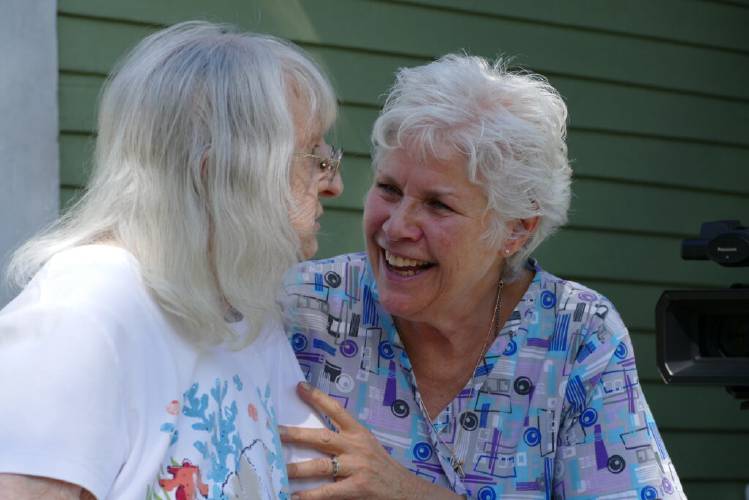Opinion: NHDHHS needs to resolve problems with the Choices for Independence program
| Published: 02-18-2024 6:30 AM |
Doug McNutt of Concord is a member of the State Commission on Aging, a former advocacy director at AARP NH, and a former director of Elderly and Adult Services for the State of New Hampshire. The views expressed here reflect his own views and not those of any of these organizations.
Many people with disabilities and frail elders need to rely on someone for help in getting in and out of bed, dressing, showering, or preparing meals. As a result of inadequate investments by the state, some of these people are unable to get the help that they need, sometimes for days, weeks, or even months.
The program that serves elders and adults with physical disabilities in New Hampshire is called the Choices for Independence (CFI) Program. CFI is a Medicaid program that provides a range of home and community-based services to eligible adults who require nursing home level of care but prefer to stay in their homes and community. In addition to being the preferred way they want to receive care, these home and community-based services are much less costly than nursing home care.
According to a report issued by the New Hampshire Fiscal Policy Institute, in state fiscal year 2021, state budget funding appropriated for each CFI enrollee totaled $18,997, while for nursing facilities, funding from all sources per actual enrollee was $98,111. Despite CFI being a more desirable and cost-effective way to provide services, this program has been chronically neglected for many years. This has resulted in a dysfunctional system that fails to meet the needs of those enrolled in the program.
Due to the significant deficiencies with the CFI program, in January 2021, a class action lawsuit was filed in federal district court. The lawsuit alleges that the New Hampshire Department of Health and Human Services (NHDHHS) has failed to properly administer the CFI program, placing CFI participants at risk of institutionalization.
Despite NHDHHS acknowledging deficits in the CFI Program, they have chosen to aggressively challenge the lawsuit, at the expense of CFI participants and New Hampshire taxpayers. Instead of trying to collaborate with the plaintiffs to rectify the deficiencies in the program, they have instead engaged in intensive litigation that is delaying resolution of the case and incurring significant attorney’s fees. This includes trying to get the case dismissed, and more recently, appealing the court’s decision to certify it as a class action.
NHDHHS has retained a private law firm located in Washington, D.C. to defend the case. As of the end of 2023, the law firm has billed over $944,000 in fees to represent NHDHHS in the lawsuit. In another pending case, this same firm has been paid another $1,000,000. So, the state of New Hampshire’s taxpayers have paid $2,000,000 to this firm, and this number continues to grow while this case drags on.
If the appellate court accepts NHDHHS’s request to appeal the class certification decision, this will result in even more time and money spent on this case. I worked for NHDHHS for 15 years: from 1992-2007. During that time cases like this involving federal litigation were handled by a special unit in the Attorney General’s office. Why has that changed? Why is it that we are paying millions of dollars to a D.C. law firm to handle this case? What incentive is there to settle this case if we are willing to spend these exorbitant sums to hire outside counsel?
Article continues after...
Yesterday's Most Read Articles
 New Hampshire State Police join ICE task force
New Hampshire State Police join ICE task force
 ‘It’s always there’: 50 years after Vietnam War’s end, a Concord veteran recalls his work to honor those who fought
‘It’s always there’: 50 years after Vietnam War’s end, a Concord veteran recalls his work to honor those who fought
 Facing 30% budget cut, university leaders say raising tuition is not an option
Facing 30% budget cut, university leaders say raising tuition is not an option
 25-year-old man shot by police in Keene, AG investigating
25-year-old man shot by police in Keene, AG investigating
 Two of five Grappone auto franchises to be sold as part of family transition
Two of five Grappone auto franchises to be sold as part of family transition
 ‘Anger and backlash’ – Allenstown residents frustrated over elimination trash services
‘Anger and backlash’ – Allenstown residents frustrated over elimination trash services
Instead of spending time, energy, and taxpayers’ money in challenging the CFI lawsuit, it would seem in everyone’s best interest for NHDHHS to instead engage in meaningful efforts to fix the problems they themselves acknowledge exist. Until the problems with the CFI program are resolved, older people and people with disabilities who need the program will continue to languish with devastating consequences.









 Opinion: Protect our winters!
Opinion: Protect our winters!
